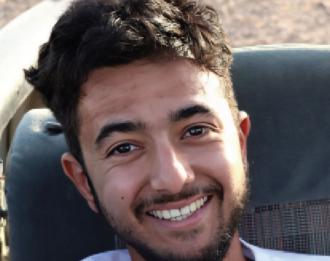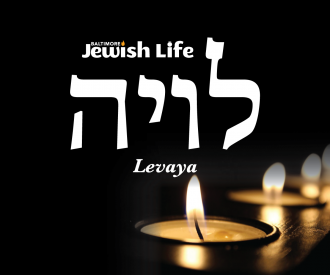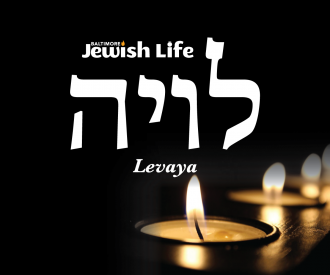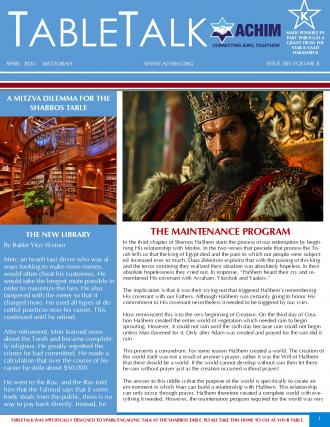Parshat Mishpatim is all about us and our relationships with each other. Civil laws, monetary laws, how to behave with compassion, even how we treat our servants, our animals and- a thief!
One of the most fundamental lessons in sensitivity to others can be seen in the מצוה of lending money:
"אִם־כֶּ֣סֶף תַּלְוֶ֣ה אֶת־עַמִּ֗י אֶת־הֶֽעָנִי֙ עִמָּ֔ךְ לֹא־תִהְיֶ֥ה ל֖וֹ כְּנֹשֶׁ֑ה לֹֽא־תְשִׂימ֥וּן עָלָ֖יו נֶֽשֶׁךְ”
“When you lend money to my people, the poor with you, do not be like a creditor, don’t place interest.”
Rashi comments that the word אם, which normally means “if”, means "when" in the case of lending. When one needs a loan, and you are able, you should (must?) lend. Additionally, Rashi is puzzled by the words את העני עמך, the poor with you. He explains that “with you” teaches us that one must view himself as if he was the poor man and thus be more generous.
This principle of “putting ourselves in the shoes of another” is so simple and yet so essential to having sensitivity toward others.
“What if that were me in this position or situation? How would I want the other person to act or react?”
Imagine our actions before giving charity, helping someone with his/ her burden, or even when needing to rebuke another, if we would stop a second to consider this.
The pause to reflect, would take up a nanosecond at most. The results of that pause are limitless.
Mishpatim are rules, statutes or judgements. This could have harsh connotations. Rules are rules. Statutes come from a similar root to statue, ie to be rigid and in place. Judgements are well, judgements.
With consideration and sensitivity, broken rules can be mended, statutes can be flexible, and as always, we are taught to be patient in judgement.
“"מכל מלמדי השכלתי
Dovid HaMelech teaches us in Tehillim (119) that he gained wisdom from all of his teachers.
Rav Chanina, in the gemara in Taanit (7A) takes this even further:
וְהַיְינוּ דְּאָמַר רַבִּי חֲנִינָא: הַרְבֵּה לָמַדְתִּי מֵרַבּוֹתַי, וּמֵחֲבֵירַי יוֹתֵר מֵרַבּוֹתַי, וּמִתַּלְמִידַי יוֹתֵר מִכּוּלָּן
“And this is what Rav Chanina said, I learned much from my teachers and from my friends (even) more than from my teachers and from my students more than from all of them”.
I was privileged to learn about consideration for others from one of my students.
The crowded school bus was trailing down the highway. Its passengers were 50 school children, aged 9-10. They were exhausted after an action packed day of the field trip. Some of them were dozing, some chatting, while most were using up the huge supply of thoughtfully packed snacks that their mothers provided.
For one of those children, the aging shock absorbers of the school bus, coupled with the mixture of culinary “delights” in his stomach was just too much. Without ceremony or due warning, little Moshe expelled the not so little contents of his stomach onto the bus floor. And seat. And window.
The attention of the previously preoccupied students now turned toward Moshe or rather to what he turned out. There was a collective “ewwww” followed by the holding of noses and scurrying away from the “scene of the crime”.
As if Moshe’s motion sickness wasn’t enough, the embarrassment blushed his cheeks and teared his eyes.
The supervising teachers reacted quickly, with one cleaning up the mess and another comforting poor little Moshe. But nothing, it would seem, would quiet the comments of his classmates.
In the midst of this chaotic scene, a 9 year old boy, very respected by his peers, stood up on his bus seat. Over the noise and commotion he yelled “and how would you feel if you had been the one sick? Put yourself in Moshe’s position. Would you like for everyone to laugh and make fun of you?”
There was almost immediate quiet as the words of this boy hit their target. The loudest silence, however, came from the teachers themselves, who stood in awe at the sensitivity and courage of the very young, but not so “little,” Daniel.
Daniel was not only accomplished in his studies. He was a good athlete and had sterling middot (character traits). There was no question why he was so popular. Unlike others, however, who might have joined or even led the laughing, Daniel used his influence to sooth another child in his time of need.
It is no surprise then to see that Rav Daniel Rose was recently installed as Rabbi of Kehilat Bnai Jacob Shaarei Zion of Baltimore, a large and prominent congregation. I had the distinct honor and pleasure to participate in this event.
It has been several decades since I was a chaperone on that infamous bus ride. Both Rav Rose and I have a bit less hair on our heads and some more life experiences behind us. Rav Rose has years of dedicated Torah learning to boot.
Like the night on the bus, I remain today in silent awe at the sensitivity and compassion that he displayed. This kehilla is fortunate and blessed to have as leaders, role models like Rav Daniel and Rebbetzin Yocheved Rose.
Shabbat Shalom











